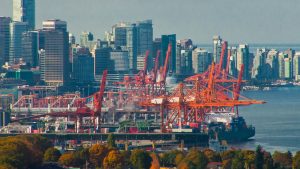The Alberta government has opened up permanent residency requirements to include skilled temporary foreign workers with an optional trade certificate and is allowing these applications to be made to the Alberta Immigrant Nominee Program without the employer’s involvement.
The Alberta government has opened up permanent residency requirements to include skilled temporary foreign workers with an optional trade certificate and is allowing these applications to be made without the employer’s involvement.
“I think we are certainly supportive of that change,” said Bill Stewart, vice-president of Merit Alberta.
“As we go forward, there will be shortages in the supply of all trades. So, expanding the trades and giving trades people an increased chance for residency is a positive thing.”
Last week, the Alberta government announced that skilled temporary foreign workers certified in the optional trades can apply directly to the Alberta Immigrant Nominee Program for permanent residency.
This means they would no longer be required to apply with their employers.
“The benefit of this is that there should not be an interconnection between the employee and the employer through the application process,” said Ron Harry, executive of Building Trades Alberta.
“This allows the worker to have more privacy and autonomy. The employer does not need to know.”
The number of people Alberta can nominate for permanent residence in 2011 has been limited by the federal government to 5,000.
With limited numbers, Alberta’s focus is on nominating people, who currently work in permanent jobs, those who have job offers, and those with the skills and qualifications in occupations that are in demand in Alberta.
Despite this experience-based approach, Harry doesn’t think temporary foreign workers are the solution to Alberta’s labour market shortages.
“We need to create a balance with a minimal use of the temporary foreign workers program, with it only being used during peak periods,” he said. “We need to remove the dependence on the temporary foreign worker program, while training and educating the youth in Canada.”
According to Harry, the government must not create a situation where there are high immigration levels and that leads to a lack of opportunities for young people.
There are 50 designated trades in Alberta.
Prior to the policy change, only nineteen compulsory trades were eligible to apply directly for permanent residency.
These occupations included welders, ironworkers, gasfitters and plumbers.
The change allows 31 optional trades to apply directly for permanent residency, including occupations like roofer, tile setter, concrete finisher and cabinet maker.










Recent Comments
comments for this post are closed